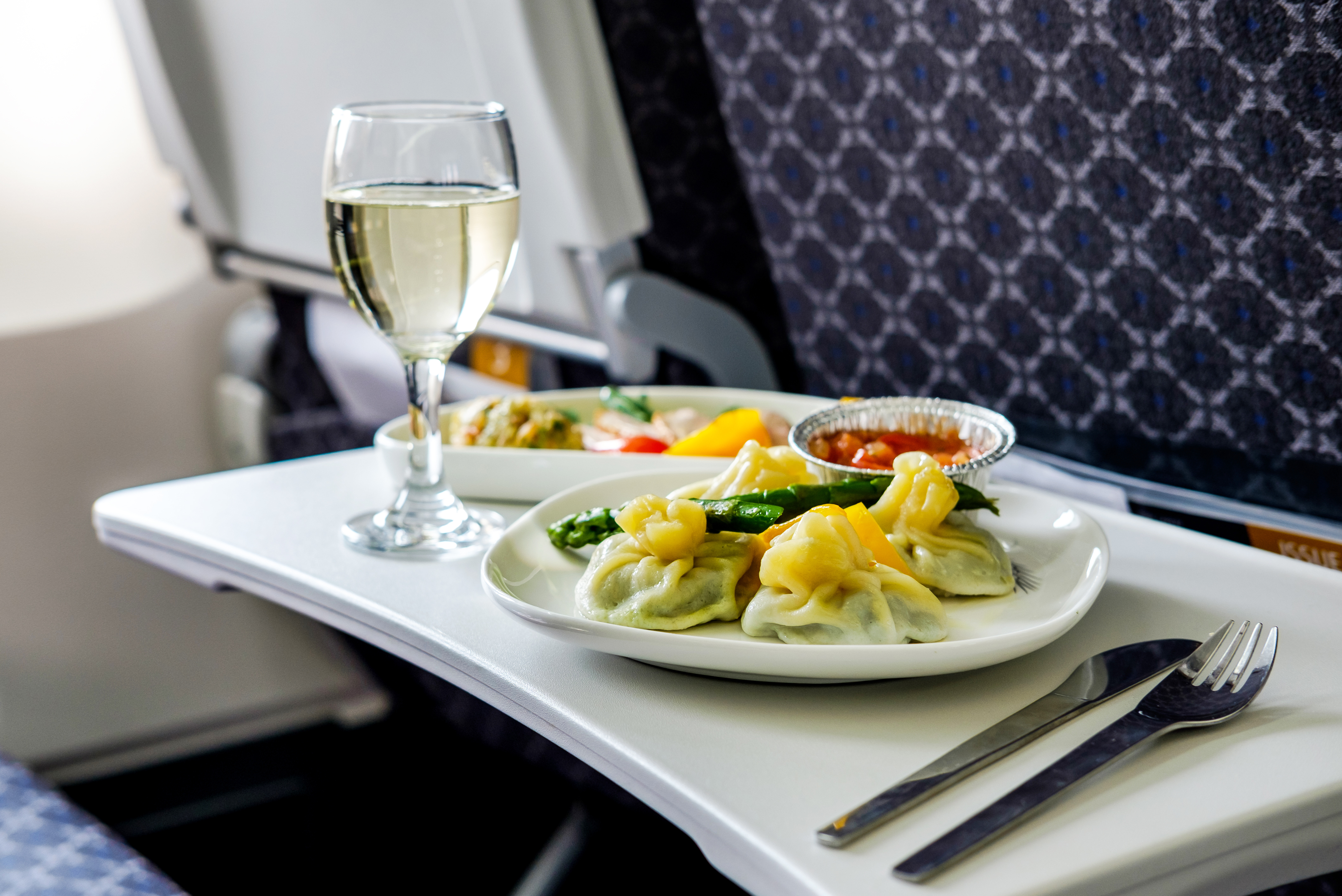Melissa Adamski APD MND BSc
Accredited Practising Dietitian and nutritionist
Nutted Out Nutrition www.nuttedoutnutrition.com.au
It is well known what we eat plays an important role in health and wellbeing, however when travelling little consideration is usually paid to diet and nutrition. While heading away on an occasional holiday and eating delicious foods is part of the fun and enjoyment, there are many instances where dietary advice while travelling is essential for many people. Providing relevant and realistic advice requires application of specialist food and nutrition travel lens to ensure information is useful and practical. There are a range of areas relating to diet and nutrition where specialist advice can be useful when travelling.
Gut health
Many people experience gastrointestinal issues when they fly such as bloating, abdominal pain, constipation/diarrhoea. Flying at high-altitude causes gases in the gut to expand which contributes to these symptoms. Dietary advice before, during and after flights can assist with managing, and helping to reduce, gastrointestinal symptoms, especially in individuals with IBS or prone to bloating and constipation.
Hydration
The dry air in aircraft cabins is dehydrating causing increased water losses through the skin. The high altitude promotes a lower oxygen environment which makes the lungs work harder, also contributing to dehydration through increase water losses through the lungs. Preventing and managing dehydration when flying is important with specific advice on types of drinks, electrolytes and how much fluid useful.
Jet lag and eating late at night
Recent research into the science of chrononutrition (diet and circadian rhythms) has shown it is important for health to consider when foods are eaten, not just what and how much is eaten. Foods eaten later in the evening are processed differently by the body as circadian rhythms influence digestion and metabolism of food. Gastric enzymes and fluid production, nutrient absorption, and gut motility reduce during the sleep period (night cycle). For example when carbohydrates are eaten at night, compared to the day, they elicit a higher post prandial blood sugar level response for longer. Our gut motility also slows down, meaning digestion is slower at night which may have effects such as bloating and other gastrointestinal issues. Specialist advice around meal timing and meal composition for people awake at night, such as people travelling in the evening, people who are crossing timezones, and shift workers working in the travel industry, is beneficial to help reduce the metabolic and physical effects of eating at night (or when the body thinks at night). This can assist with helping reduce risk of developing chronic diseases and also may help reduce symptoms of jetlag and assist with circadian realignment.
Food allergies, food intolerances and dietary requirements
Many people have specific dietary requirements ranging from food allergies, food intolerances and lifestyle dietary choices. Travelling can be difficult for people with specific dietary requirements as foods can be unfamiliar in different countries. Food allergy labelling laws may also differ, for example definitions for gluten free foods differ in Australia compared to Europe. Understanding the local labelling laws and common foods found in different countries is essential for helping people with dietary requirements travel more smoothly and without food anxiety.
Eating out
When travelling it is common for people to eat out for most, if not all their meals. This can mean people eat more discretionary and/or less nutritious foods than usual, or generally eat more than would at home. For people who travel often these changes in dietary patterns can add up over time and may impact health. Dietary recommendations that consider factors such as mode of transport (airline, rail route or road route), accommodation, itinerary, country or city/town, can provide more specific and practical dietary recommendations and food strategies.
Chronic disease
Providing nutrition and dietary support to frequent travellers with, or at risk of developing chronic disease is essential for maintaining health goals. People living with diabetes, cardiovascular disease, chronic inflammation etc benefit from dietary management in general, and this doesn’t stop when travelling. Dietary strategies should be amended to reflect the travel plans of individuals including foods available enroute and at the destination. With a general lack of control regarding foods available when travelling (especially while flying), information prior to travel can assist with organisation and decision making.
Travelling with kids
Whether travelling with babies starting solids, toddlers who are picky eaters, or children with food allergies, having support with food strategies can make travelling go more smoothly. Being familiar with availability of foods during different stages of a trip can help families be more prepared and reduce anxiety and stress that may come with travelling with young children. Knowing the types of meals served on planes, in airport lounges, food courts, and hotels specific to different cities and countries can mean families can make decisions early about whether they need to take their own food or be able to purchase appropriate food at different locations.
Travelling while pregnant
When pregnant it is important to avoid foods that have a high risk of causing foodborne illness. This can be incredibly difficult when travelling, especially flying, as food choices are mostly out of people’s control and are limited. On top of reduced food options, many pregnant women find themselves suffering from nausea which means they don’t feel like eating and can ‘turn off’ many foods, further restricting what they can eat. These factors make eating a nutritious and varied diet difficult when travelling while pregnant. Advising on what foods are ok to eat not only helps improve nutrition but also helps improve enjoyment of travel while pregnant.
Visit www.nuttedoutnutrition.com.au for diet and nutrition information while travelling, including reviews of airport lounge food and plane food. Bookings can also be made to see an Accredited Practising Dietitian specialising in travel food and nutrition.

